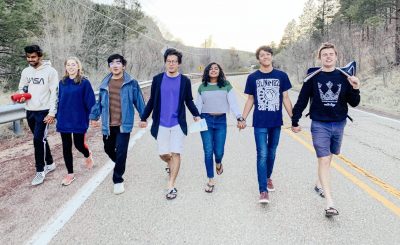The United World College-USA is encouraging the community to write to President Trump and Congress to lift the temporary bans on travel to the United States from 31 countries and reopen U.S. consulates so students can get visas.
In the first 24 hours more than 200 people participated in this effort. Refer to this link on the UWC-USA website for a sample letter and more information.
“I think it’s really important for as many people as possible to send a message to their congressperson that these presidential proclamations affect not only us, but many other people at hundreds of institutions in the United States,” said John Carpenter, director of admissions at UWC-USA. “The proclamations affect our mission, our revenue, and the experience the kids get to have. We are committed to providing a UWC experience based on our values and we want to provide that to the same diverse group as always.”
UWC-USA is expecting a total of 220 students for the upcoming academic year who represent about 90 countries, Carpenter said. About half of those attending the two-year international high school in Montezuma, N.M., will be first-years, including nearly 30 from the United States. All students from abroad, except those from Canada, need visas to study here.
The United States has travel bans on China, United Kingdom, Ireland, Iran, Brazil and 26 European countries who share relaxed border controls. Carpenter has heard they could be lifted in 30 to 60 days.
“I’ve been checking websites, but nothing official yet,” he said. “We know we will start with a much smaller group in August. (Students) will come in waves as consulates do open.”
When COVID-19 spread worldwide, embassies were closed so its employees could return to the United States.
“The U.S. consulates have temporarily stopped issuing visas,” Carpenter said. “Even though (first-year students) have all the paperwork needed, the last step is having a visa interview at a consulate.”
Carpenter remains optimistic that bans will be lifted and consulates will reopen.
“However, it may be a while, which is why it’s important for us to reach out to our elected representatives to start issuing student visas again,” he said, noting the school will offer an online teaching, experiential education and residential program for students.
Carl-Martin Nelson, the school’s director of communications, cited a UWC tradition of activism for the effort to contact Washington.
“The UWC community is typically focused on action to solve problems rather than just talking about problems,” Nelson said. “We can all write letters and call our representatives in Washington to support these students and the international study community as a whole. We’re better off as a country when we have opportunities to learn with and from people from other places and with different backgrounds.”

